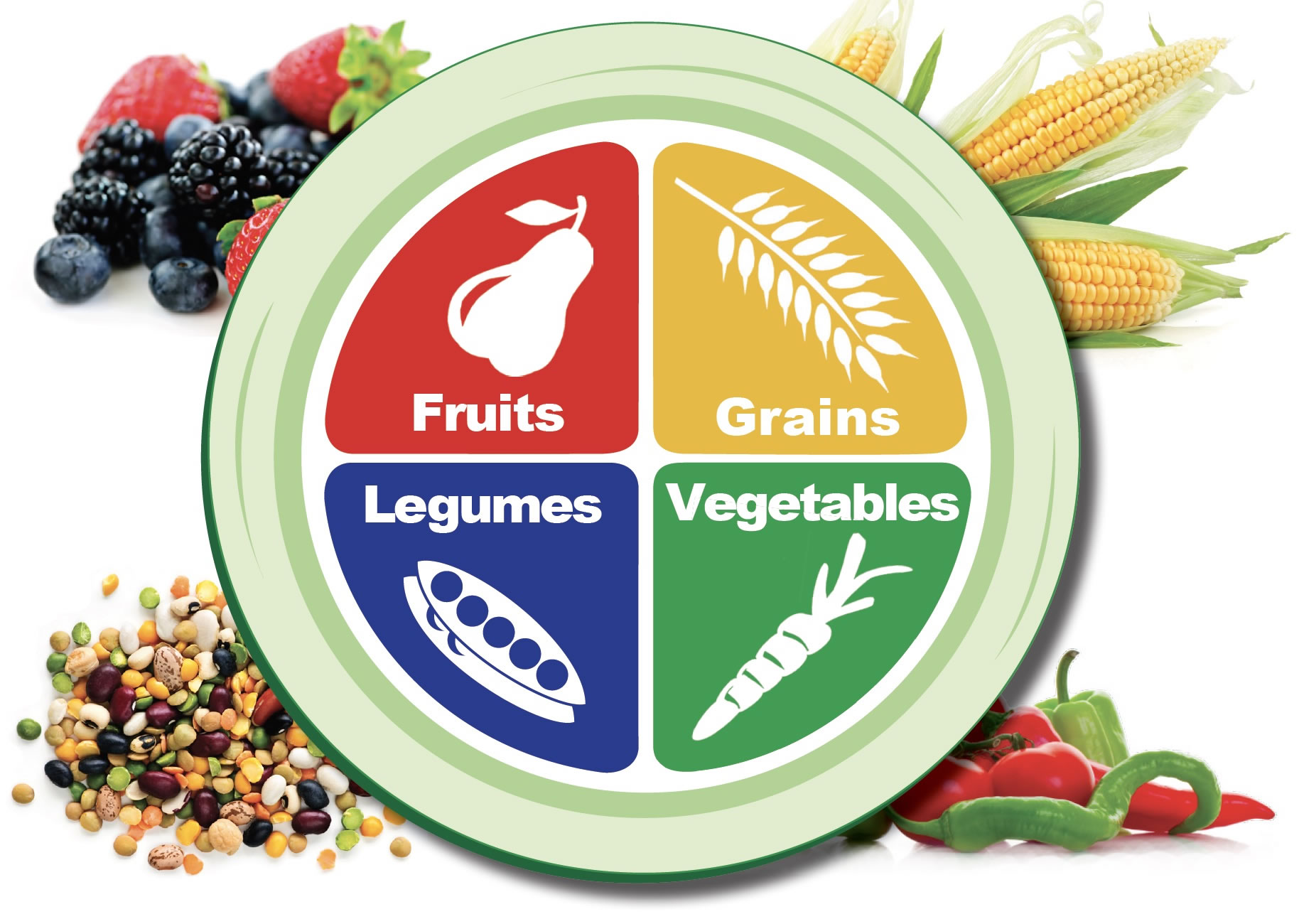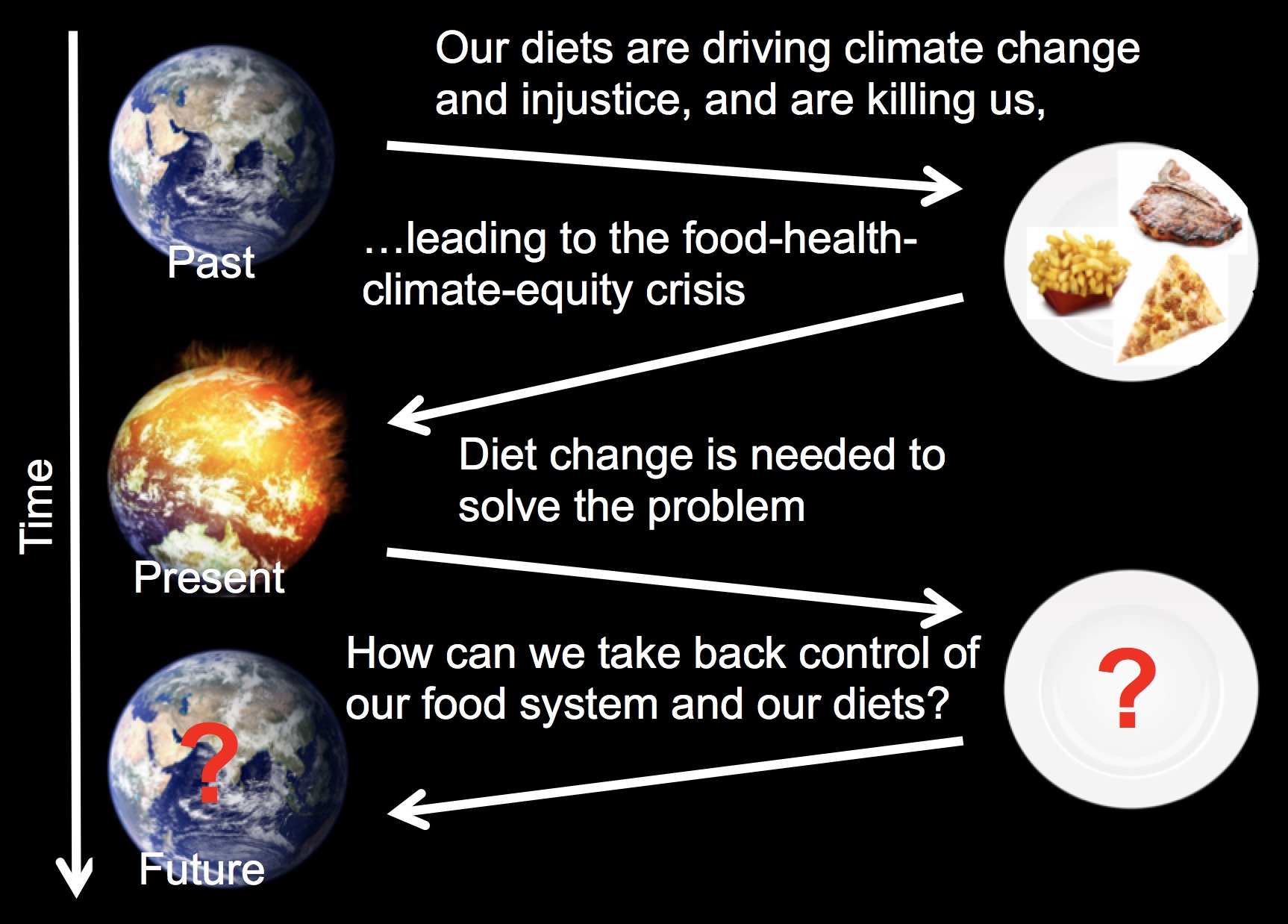| |
|
In Diet & Global Climate Change
we analyze the global food-climate-health-equity crisis
and the potential of diet change as a solution.
This course will empower you to
participate in the important discussions and decisions
about our diet and climate happening every day. We will
analyze theories, data and values from different
viewpoints, and test hypotheses about the relationship
of diets to climate change, health, and social justice.
A basic assumption of this course is that
anthropogenic global climate change (GCC) is the biggest
threat to the living Earth as humans and many other
species have known it. It is highly probable that if
humans and many other species are to survive much beyond
the next century, we will have to mitigate anthropogenic
GCC. We need new approaches that reduce our total
impact. It requires thinking beyond the Neolithic,
including rethinking our diets.
“Diet” in this course means the
combination of foods habitually eaten by individuals and
populations. Diets vary by type, e.g. omnivore,
vegetarian, or vegan, and by the quantity and quality of
nutrients they contain, by their affect on our health,
and by their journey to our plates, e.g. foods can be
local v. non-local, processed v. unprocessed,
organically v. conventionally grown, fair trade or not,
grown on small or large farms, grown by workers treated
justly or not, and inflicting suffering on animals or
not.
The major questions we will
address in Diet and Global Climate Change
class are:
- How can diet change reduce:
- greenhouse gas emissions (GHGE) in
the agrifood system, from inputs like fertilizers,
to food waste?
- the risk for diet-related diseases
like diabetes, heart disease, and cancers, and GHGE
from health care?
- How do knowledge, values, food
environments, food corporations, and government
policies, affect our diets?
- What changes can we make on our UCSB
campus and in our communities to support better food
choices and diets?
- How can we help to motivate diet
change for friends and family, communities, and policy
makers?
|

